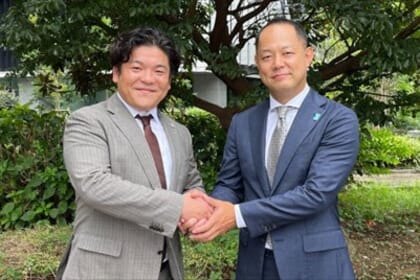As one of the largest seafood markets in the world, Japan’s commitment to sourcing responsible aquaculture seafood is key to a more sustainable global seafood market.

“We recognise that the aquaculture industry has a vital role to play in solving the problem of food shortage caused by an increasing global population. With the signing of this MoU, we will deepen our collaboration with the ASC and accelerate our contribution to the growth of Japan's seafood industry to create a prosperous society for future generations. We will pursue this by rebuilding a seafood business model based on environmental sustainability and social responsibility, and by strengthening collaboration in the global supply chain, especially in Japan which is one of the world's major seafood markets,” Wakao Hanaoka, CEO, Seafood Legacy Co, said in a press release.
“The Japanese seafood industry consists of a large number of world-leading seafood companies, as well as family businesses. The transformation of the industry towards more environmentally and socially responsible practices is only possible with consolidated efforts from stakeholders across the sector. We at ASC are therefore delighted to be entering this agreement with Seafood Legacy Co. who will be essential in helping to achieve this transformation,” said Koji Yamamoto, ASC general manager for Japan.
In the future, both parties will strengthen their exchange of information and seek opportunities for media collaboration, as well as developing links between production areas and markets, and domestic and international distribution channels.
In Japan, the number of companies that have achieved ASC certification is growing – with 82 companies already certified as of August 2022. The shift towards responsible sourcing is driven in part by a heightened consumer awareness of eco-labels, according to ASC. In the latest ASC consumer survey, Japan’s consumer awareness reached 23 percent in 2021: a growth of over 150 percent since 2019.
Global wild-catch fisheries production has increased over the last decades, and major stocks have rapidly declined across the globe. Meanwhile, the need for a sustainable source of protein is rapidly increasing. Aquaculture production can provide part of the solution in meeting this need, with the FAO forecasting that aquaculture’s share of production will increase to 59 percent (109 million tonnes) by 2030.
While aquaculture production can provide a stable supply, it is critical that it is conducted in an environmentally and socially responsible manner. The standards developed by ASC include monitoring key indicators like water quality, mitigating impacts on the surrounding environments and engaging with neighbouring communities, to ensure that ASC-certified farms are meeting strict and stringent criteria.
“Our goal is to increase the percentage of environmentally sustainable and socially responsible aquaculture and marine products in Japan, and at the same time, to expand the distribution of these products to overseas markets so that the Japanese seafood industry will become more sustainable and responsible,” Yamamoto said.

